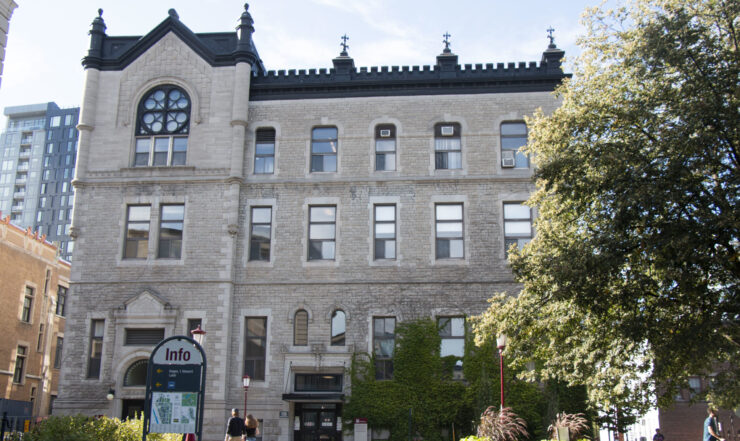When universities are forced to compete with one another, they must provide the best programming possible or risk losing the best students. The Ontario government’s movement toward specialization risks making “the best students” analogous with “the most privileged students” in narrowing the opportunities a post-secondary education is capable of providing.
Moving forward with its plan for specialization, the government is forcing universities and colleges to focus on improving specific programs in order to continue to receive funding. On the surface, the funding will improve programs universities are already known for, ensuring they are able to provide the best resources and programming possible.
But as the competition drops, what is the motivation to ensure the program is actually the best? If the program is the only one, how can anyone judge if it’s the best it could be? While the government will certainly be monitoring the success of each program’s graduates, without anything to measure their success against, how will they determine what it looks like?
While the idea is to move universities and colleges away from trying to be all things to all students, there is value in providing programs that aren’t what the institution is “known for.” Students choose schools for a variety of reasons and not everyone has the luxury of being able to relocate for a specialized program. And after graduation, not everyone has the means to relocate in order to escape the now over-saturated market of specialized professionals in the city they all had to move to for their education.
If a student wants to reduce debt by staying home, this means they have may have to choose a different program, or more troubling, choose a program that is officially recognized by the government as being less good, making them less competitive in the long run.
Of course this already happens, with some programs having better reputations than others. But having these reputations created and monitored by the government makes it more difficult for universities to be flexible in meeting market needs and returns us to the question of how we evaluate the success of these programs.
Without funding, what is the incentive for the university to continue providing less reputable programs? Tuition does not actually cover all of the costs of running the university. The U of O has had to raise tuition for nine consecutive years partially because government funding has been reduced. Evidently, having interested students is not enough.
At the University of Ottawa, the journalism program was suspended and restructured with a new focus on digital journalism because they were not maintaining competitiveness in a city with two other well respected post-secondary journalism programs. The new program promises a new focus and brings something different to the city and to the campus, while still allowing the U of O to provide the program to their students.
With degree specialization, postsecondary institutions are only allowed to choose five programs to expand using their funding. Would the U of O have been motivated to restructure the program to attract students or would they have given up and allowed Carleton and Algonquin to claim funding, rather than providing a better program?
Finding employment is also impacted by the contacts one makes. University can be an excellent opportunity to gain contacts in the local community. If a majority of graduates in a particular field are starting out in the same city, competition is strong and many will be forced to relocate. Aside from the financial strain of relocation, there is also the barrier of establishing new networks. It provides a huge immediate advantage to those with financial advantages. They will find it more easy to move and may not be forced to work more than 40 hours weeks at minimum wage to survive, thus providing them with time to rebuild their professional network in their chosen field.
Students also choose universities for athletic programs. The U of O has 11 varsity teams and and 20 competitive clubs, representing a large number of students overall. For universities hoping to attract top athletes to their schools, recruitment becomes a problem. Coaches looking for great athletes are not only selling them on the team, the location, and the atmosphere of the school, but now have to look for talented players who also have an interest in that school’s specialized programming.
Access to loans has allowed many more students to attend university than in the past. While some lament this, looking at new realities like some retail management positions requiring bachelor’s degrees as minimum qualifications, a more pressing reality is that the Canada we live in has a market more directed by services and technology than manufacturing and labour.
Specialization has the potential to create a new gap between rich and poor. Instead of only the rich receiving degrees, as in the past, we’re looking at only the rich being able to afford to relocate for the more competitive degrees or only the rich being able to make use of those degrees when student loan payments kick in six months after graduation.
Financial hardship isn’t a badge of honour the government should strive to reward, but setting up a system that adds to that hardship isn’t something we should support either. More people have access to degrees than ever and we’re all still required to work hard and make contacts if we hope to have a chance at success. Having the government undermine those efforts seems like an effort to fix an aspect of the system that didn’t seem to be broken.





